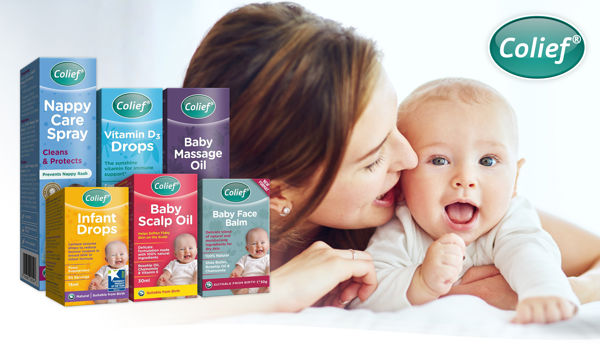The first weeks at home can be a daunting, but exciting time for many parents as you get used to your new life with a newborn. Once you've left the hospital or midwifery unit, it's understandable that you may feel apprehensive about being on your own, but your confidence will increase each time you hold your baby. Midwives, GPs, and health visitors will see you whenever you need following birth, to check in on you and baby, ensuring everything is okay both physically and mentally.
Take Care of Yourself
Though it may feel like every minute of your day and night is spent running around and tending to your baby's every need, it’s important that you take time to look after you too - this goes for both parents.
You both must make sure you are taking time for yourselves where possible, supporting each other and staying active and healthy, so you can better care for your little one. The first few months are exhausting and challenging, so it’s also important to give yourself (and each other) time to rest. It may be tempting to use the time baby sleeps to catch up on chores but try to use that time to sleep and ask for help if you need it - perhaps someone to help you do some of the housework or watch the baby so you can rest in the first couple of months.
Stay Healthy
Exercise is a great way to not only stay in shape, but it’s also a good way to de-stress and get some fresh air. Take the baby out on a stroll or go running with the buggy, do short 20-minute home workouts, or go for a light swim - anything to release those endorphins, strengthen your body and clear your mind.
Alongside this, make sure you maintain a healthy diet, particularly if you’re breastfeeding to not only keep you healthy, but ensure the baby is getting all the nutrients and vitamins possible through your milk.
Seek Support
Relationships with friends, family and even with your other half, can change after you have a baby. Many women turn to their own mum or sisters who’ve had babies for help and support, but it’s always a fine line between helping and interfering, so it can put a strain on relationships. Just try to let them know what help and support you want from them, so they know not to over-step.
Your relationship with your partner will also change somewhat. In those exhausting early weeks, you may both be tired, stressed, and irritable, so you both need to have some time alone, with each other and without the baby, to remind yourselves of how you were before your baby, and how you got to that point - love!
They can help you where and when you need them, just let them know what you need. Even if it’s looking after the baby for an hour while you shower or taking a night shift and using expressed/bottled milk, remain supportive of each other and you’ll be great parents.
Your feelings towards your baby may not all be positive either, especially when you’re sleep-deprived. Don’t ever feel guilty if you sometimes feel resentful towards your demanding mini-human or be alarmed at any emotion you may be feeling. Make sure you talk to your midwife or health visitor, or if you are anxious, worried, upset, angry, depressed - they are there to help.
Take Care of Your Mental Health
'Baby blues' is common amongst women in the first week after childbirth. Women can feel irrational and emotional and burst into tears for no apparent reason be irritable or experience anxiety and/or depression.
Your body has just been through 9 months of extreme changes, hormones are all over the place and now your world has been turned on its head with a tiny being to look after. It’s no surprise you may feel this way. What’s more, it’s totally normal and should only last a few days.
In situations where these blues don’t go away, this can be a sign of postnatal depression (PND). As mentioned, if you’ve had a traumatic birth, and these blues haven’t gone away, it can be an indication of PTSD (post-traumatic stress disorder), either alongside, or instead of PND, which may have been linked to you feeling out of control or anxious and afraid during the birth. 1 in 10 women get PND48, so just know that you’re not alone.
What Help is Available?
Help is available through your GP either by way of therapy, self-help practices, or medication. Many celebrities have spoken out about their experiences with postnatal mental health and raising more awareness about how the way you may be feeling is quite common. It can be reassuring to know that there is help there and that others are going through the same thing to make you feel less isolated and alone.
Loneliness can be another factor that can affect a new mother’s mental health, particularly if it’s their first baby. Cut off from friends who perhaps don’t have children or finding it hard to find mummy buddies, even if you have friends and a great support network, it can be difficult to make time to see them and be ‘you’ again.
Many women struggle with their self-identity post-birth and feel like they’ve lost who they are. Therefore, it’s so important to make time for yourself, use your family and partner to take care of the baby to give you some alone time, or time with friends.
You can also join postnatal groups near you, or if you took group antenatal classes, see if you can reach out to some other mums on there, mother and baby groups in your community, carer/parent, and toddler groups, and even playgroups will have lots of parents you can talk to and make friends with. There are even apps available to meet other mums in your area. The likelihood is, you’ll find a mum who feels the same way and just wants someone to talk to who knows what they’re going through.
If you are finding things particularly difficult, with any aspect mentioned above, do contact your GP or health visitor who can help you. You can also post anonymously on our Your Baby Club UK Facebook page for our ‘Ask the Fans’ segment by dropping us a message. Parents and parents-to-be share their advice, leaving the ball in your court as to whether you want to reach out to them directly, or just take the advice they give. Although it isn't monitored by health professionals, you may get some valuable peer support. However, please contact your GP in the first instance.
It can be easy for you to blink and miss your maternity leave. Click here to read how to make the most of your maternity leave.





